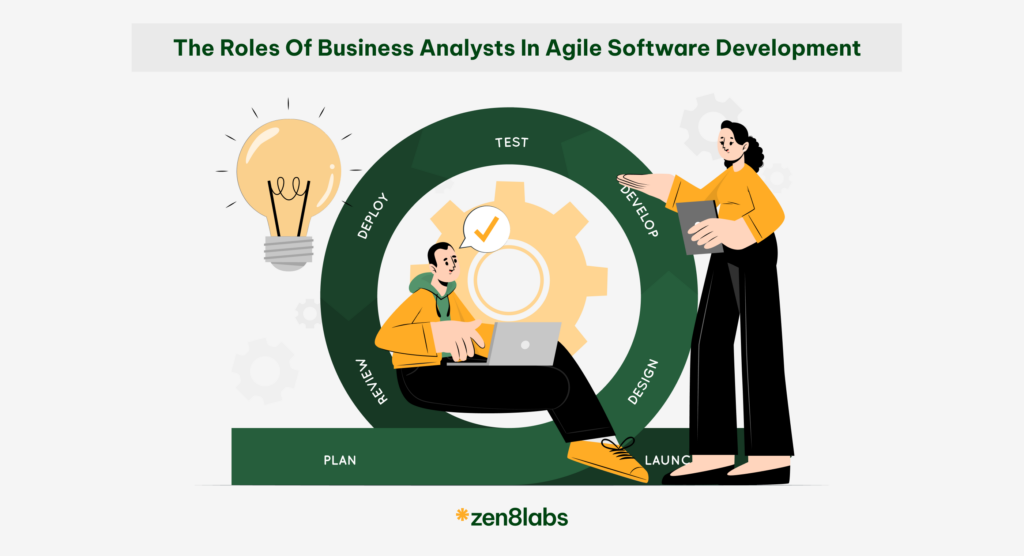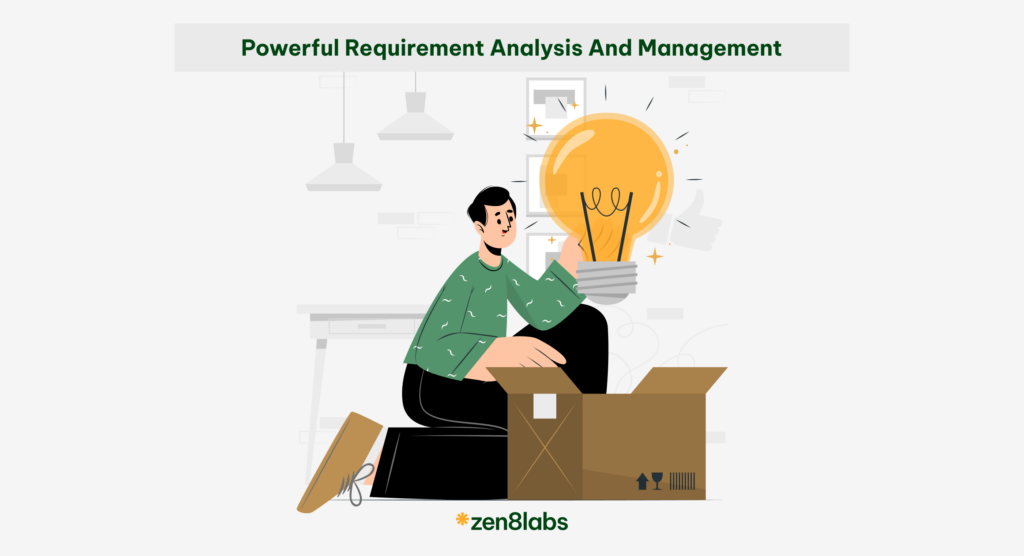
In the rapidly landscape of business technology and strategy, the Business Analysts (BA) occupy a crucial role in the organization. In 2025, the scope and capabilities of BA will be redefined by the trends you will see in my blog. I will take a quick step into each area to help you understand the impact that they will have on the role of a Business Analyst.
1. Artificial intelligent and automation
Generative AI is ready to revolutionize business operations beyond simple automation. It is stepping into strategy sessions, helping create predictive models, automating processes, and even brainstorming new business solutions.
The pivotal differentiator will be not just implementing AI in general but effectively integrating AI technologies like natural language processing (NLP), computer vision, speech recognition, machine learning (ML), and robotic process automation (RPA) into current business workflows to boost efficiency.

In zen8labs, we encourage all employees to use AI in their daily work to save time and labor power. Besides, we also invest heavily in AI literacy programs, which ensure members can effectively collaborate with AI tools rather than being placed.
How a BA can prepare:
- Learn Generative AI tools
- Develop prompt engineering skills
- Audit AI outputs
2. Agile and adaptive frameworks

Implementing Agile practices on a larger scale for big projects and organizations has become crucial. While Scrum continues to lead, hybrid frameworks (Agile + Waterfall) and scaled methods (such as SAFe and LeSS) are expected to grow in popularity.
How a BA can prepare:
- Practice Agile and some adaptive frameworks
- Collaborate across the team
- Get certificate in Agile
3. Sustainability and Environment, Social and Governance (ESG) Initiatives
Sustainability is shifting from being a mere corporate social responsibility checkbox. It is now becoming a fundamental part of core business strategy. Sustainability is no longer optional; companies are embedding it into their operational goals.

How a BA can prepare:
- Help design processes and solutions that align with sustainability goals
- Measure and report on ESG metrics
- Identify cost savings through sustainable practices
4. Cybersecurity
Cybersecurity is a major concern due to the rise in data breaches, particularly as businesses become more dependent on digital solutions. Organizations will recognize cybersecurity as a strategic business function, rather than merely an IT concern.

How a BA prepare:
- Become partners with security teams
- Focus on compliance, especially data privacy
5. Working in a remote and hybrid world

Remote work has become the standard gradually, demanding creative approaches to collaboration and virtual engagement. Hybrid work models are still developing to support work. Besides, Virtual facilitation and collaboration tools will remain essential for gathering requirements and managing projects/products with distributed teams.
How a BA prepare:
- Learn to use tools like Miro, Microsoft Teams and other virtual methods
- Learn effective ways to engage and communicate with remote stakeholders
Conclusion
The business analysis trends of 2025 highlight the growing role of business analysts, emphasizing the importance of ongoing learning and adaptability. By acquiring new skills and utilizing advanced tools and methodologies, business analysts can establish themselves as key leaders in driving innovation and supporting their organizations in achieving their goals. I hope that you are now aware of the range that these trends are facing, but if you want to help to continue to grow, then contact us
Cai Nguyen, Business Analyst


